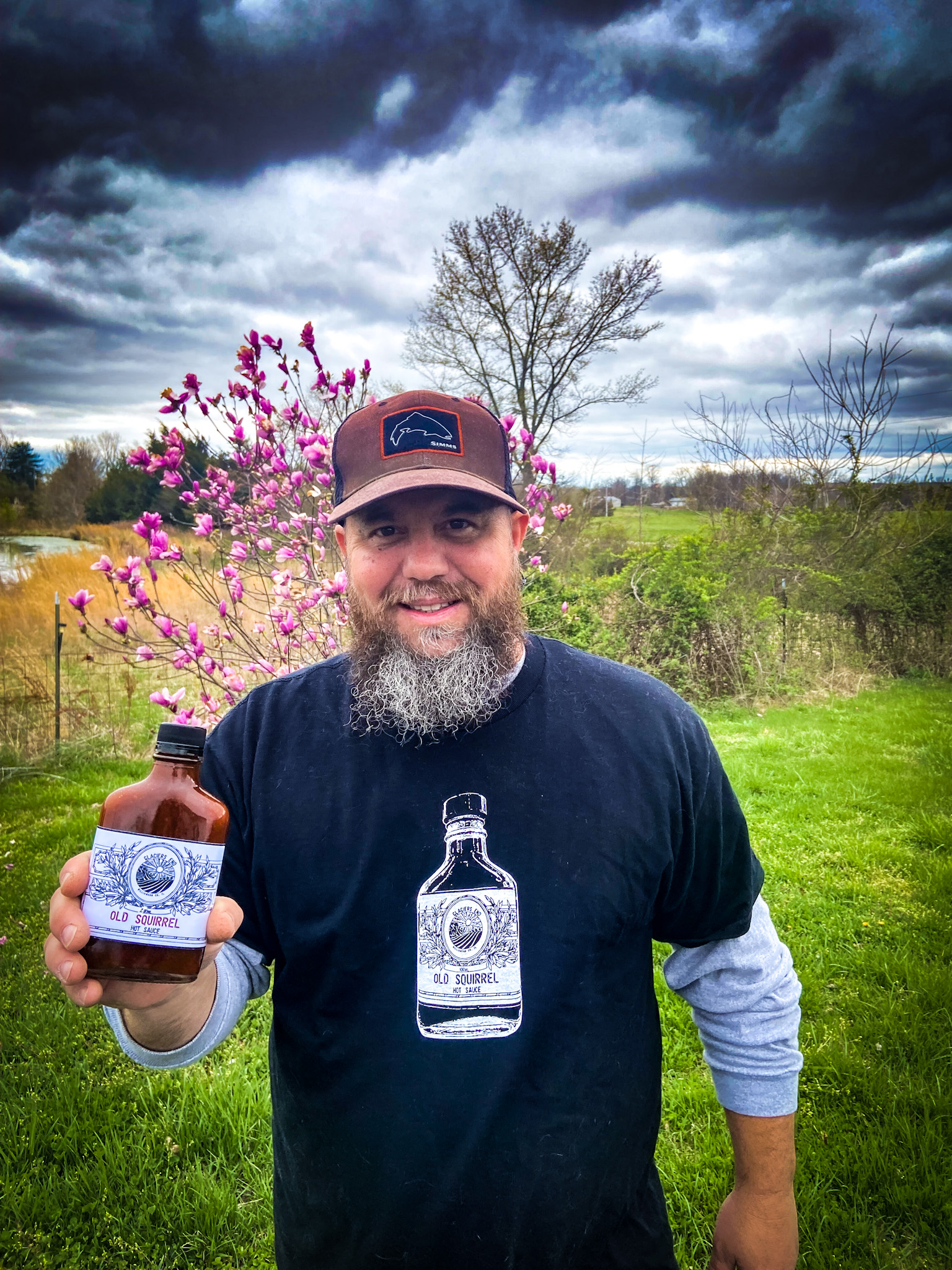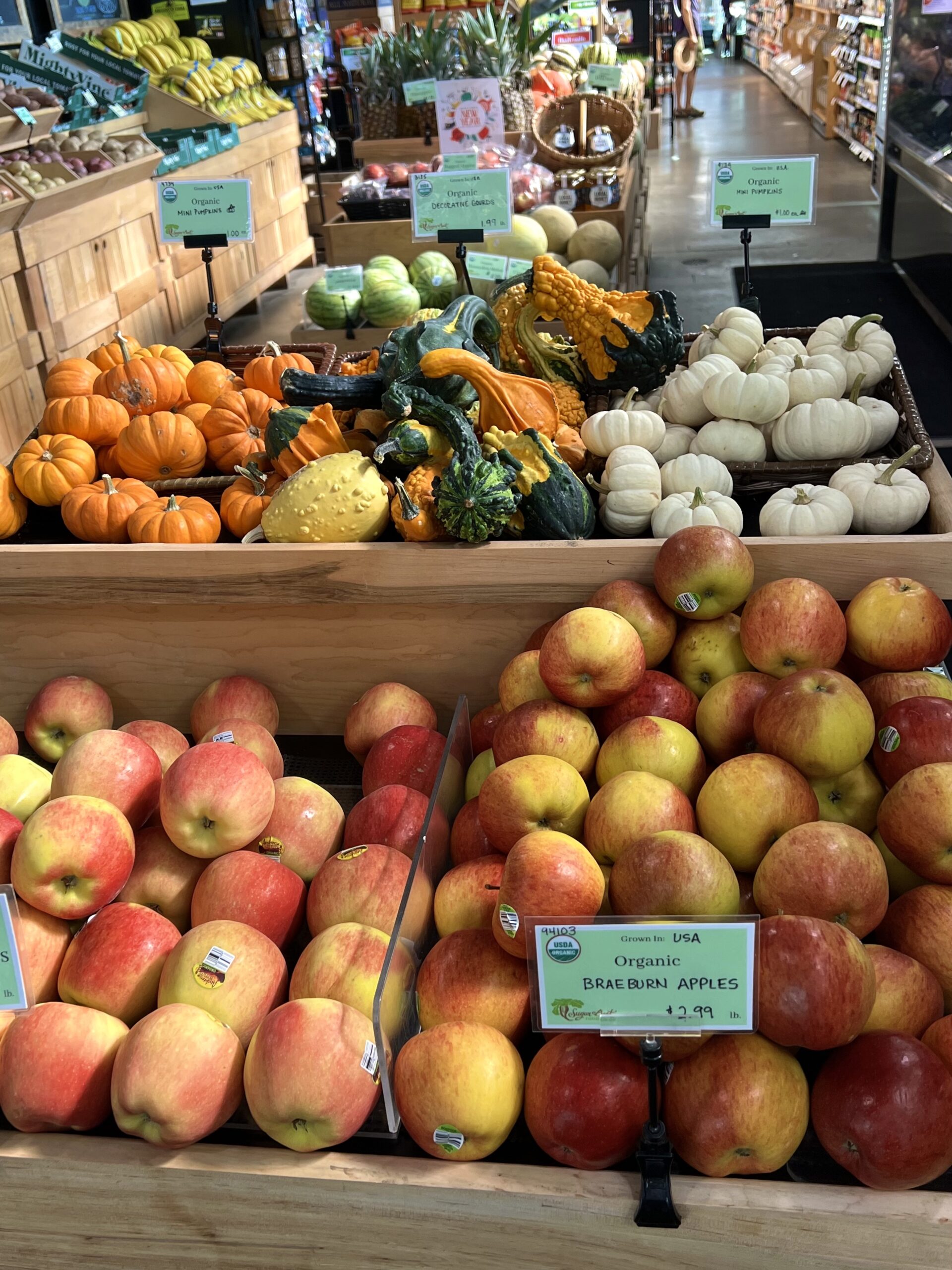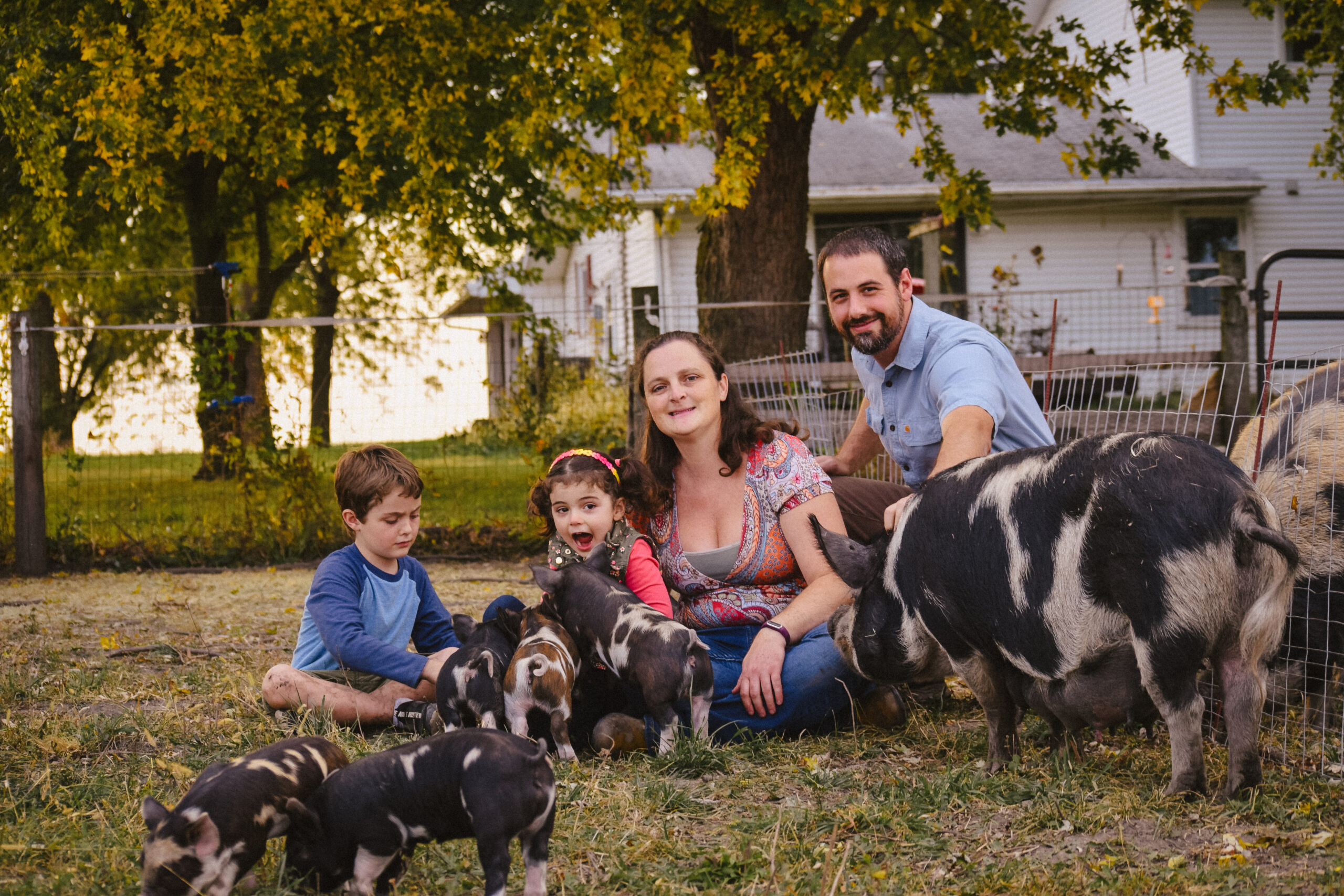
January is the perfect time to fill your freezer with pastured meats
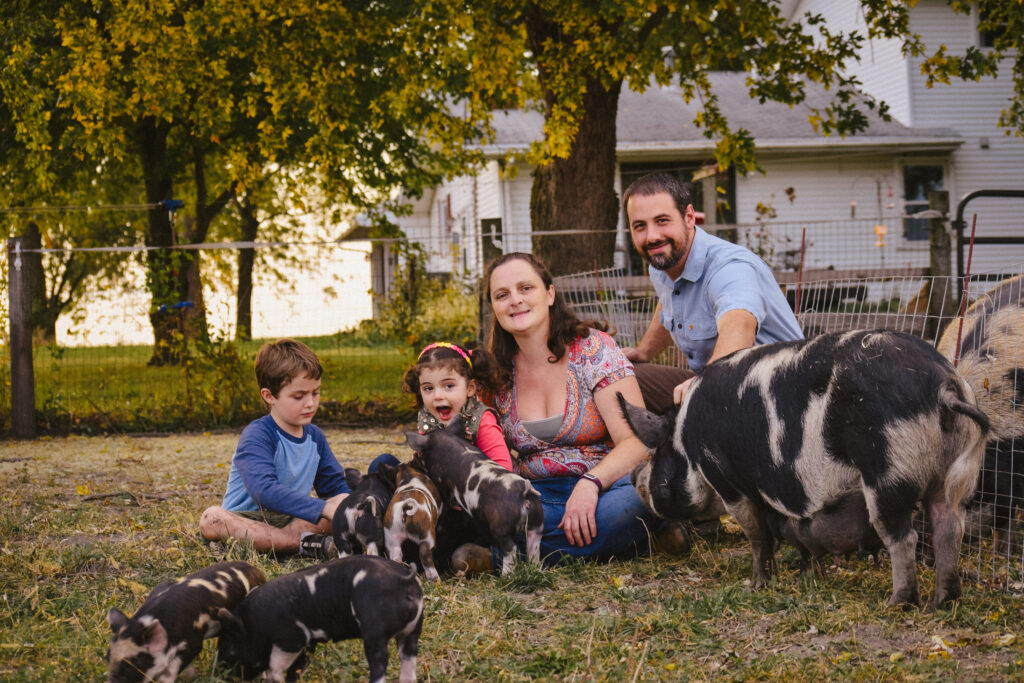
January is the perfect month to buy local meat. Cold winter days lend themselves to wholesome winter meals, and pastured meats are a natural choice for all your hearty stews and roasts. What’s more, pastured meat is easy to find in the winter months and purchasing in January helps support farmers all year round. In recent years, the farmer’s share of the food dollar has dropped to just 14 cents for every dollar you spend, making it harder for farmers to earn a living. When you buy directly from local farms, you’re ensuring they get every penny and can keep producing local products to help sustain you and your community.
Read on to learn about pastured meats from Little Farm in the Country and search the Buy Fresh Buy Local Illinois directory to find pastured meat near you.
Grazing in the grass at That Little Farm
Meet Colleen Ruhter
Even in the unpredictable world of farming, 2021 was a doozy for Colleen Ruhter, who owns and runs That Little Farm in the Country (Sidney, IL, near Champaign) with husband Jeremy Ruhter.
On the upside, the couple pitched their own tent to sell their pasture-raised pork and chicken at Urbana’s Market in the Square, after previously selling through Ruhter Bison (owned by Jeremy’s family). And Colleen was nominated by The Land Connection for Routes to Farm’s Farmer of the Year competition.
On the downside, Colleen stumbled in a hole while doing barn chores and broke her right ankle in three places, sharply limiting her farming activities for most of the year. Colleen, who says the leg is back to 80 percent normal, accentuated the positive during an interview just before the new year.
While Colleen spent much of her youth on her grandparents’ farm near Peoria and Jeremy’s parents started the bison farm 11 years ago, neither intended to follow suit. They met as engineering students at University of Evansville (IN) and pursued professional opportunities in Annapolis, Maryland. But the pull of home was strong, especially after they became parents.
They found a location that met their three criteria: At least three acres, within 30 to 40 minutes of Champaign, and less than $300,000. They initially intended to do homestead farming to feed their growing family but decided to go bigger shortly after they started raising livestock.
Why pastured pork?
The first big decision they made was to replace their Duroc pigs — which dug up the pasture — with Idaho Pasture Pigs, a hybrid that is docile, somewhat smaller, and much gentler on the fields. Colleen, whose engineering expertise is in stormwater and environmental engineering, said that they were drawn to pasture-raising by the positive environmental impacts, and the prospects of less damage to their grazing land was very appealing.
Noting that they had to supplement the Durocs’ diet with eight to 10 pounds of grain per day, Colleen said, “When we heard about the Idaho Pasture Pigs and how they could consume a lot more grass and they would eat less grain and they were a lot more gentle on the pasture, it seemed like a more environmentally friendly approach to what we were already trying to do in order to get some good quality pork.”
She continued, “I’ve definitely got a good small following of people who, once they’re willing to try it, once they see the value of spending an extra couple bucks per pound on a good quality meat, that it’s really worth it. The meat that we sell is a really dark red meat. It’s got a lot of iron and beta-carotene in it from all the grass that the pigs eat, because about 75 percent of their diet is grass.” That diet is supplemented with “a non-GMO corn and soy mix with the right minerals, and the minerals make a big difference so that they’re not rooting.”
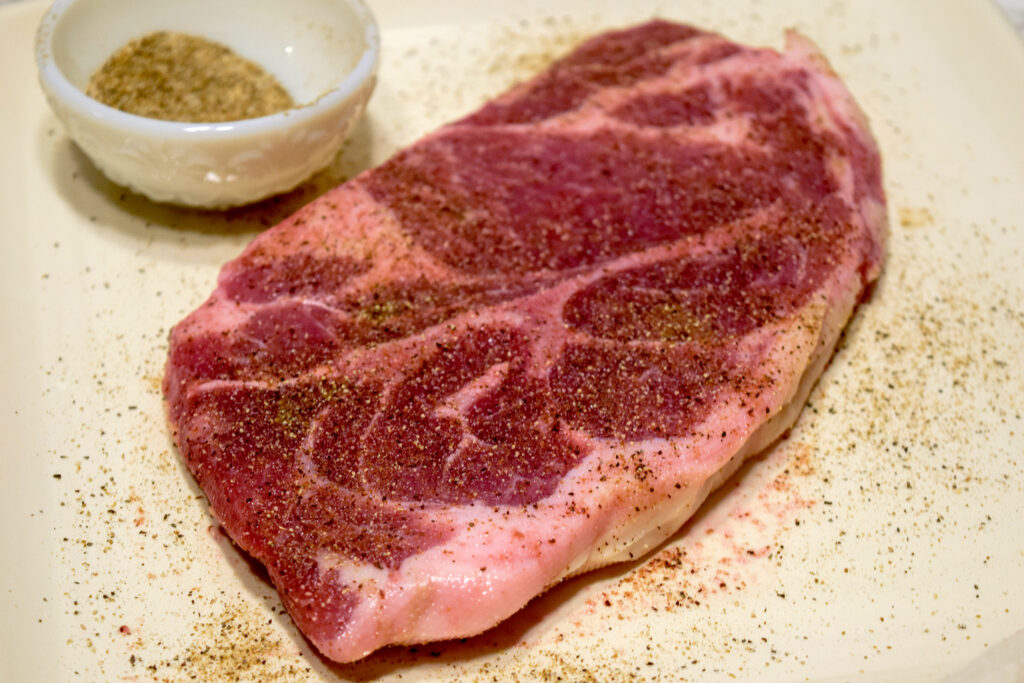
Making it work as a small farm: “A Labor of Love”
They also learned to McGyver solutions to farm problems, with the help of her father and his workshop. Their chickens are pastured in a chicken tractor, a mobile coop with removable wheels that shelters the birds from predators, and they developed a lever that enables one person to raise the tractor to take the wheels off (so it sits more flush to the ground) and back on. They also raise mealworms to feed the chickens and developed a mealworm sifter that fits their specifications. (Both products are available for sale on their website.)
Colleen doesn’t sugar-coat the challenges of small-farm economics. Both she and Jeremy have full-time jobs at University of Illinois in Champaign, which is more rule than exception; the most recent U.S. Census of Agriculture found that 58 percent of producers had a primary occupation other than farming.
There is also the patchwork of federal, state and local regulations that currently prevent them from selling product on farm, and the shortage of livestock processing facilities that is hindering the growth of pasture-raised meat production. “It’s been hard trying to work two full-time jobs, managing two kids, and then managing the farm. Sometimes we’re out feeding pigs at 10:30, quarter to 11 at night and then getting up next morning to try to go to work,” she said.
But for Colleen, this “labor of love” is definitely worth it:
“When I was in high school, if you’d asked me if I’m going to be going to a farmers market and talking to people, I’d have laughed at you. I was so shy and it just wasn’t anything anywhere near my radar. And now, I love every minute of it. I love talking to customers. I love hearing from customers. I love sharing the stories of animals and our farm. I love hearing their stories of the meals that they’re making, and how great they are and they couldn’t believe how good it was.”
Where to buy:
You can find That Little Farm in the Country products by contacting them directly and arranging for purchase and pickup on their farm in Sidney, Illinois, or find them at the Urbana Market on the Square on Saturdays from May through October.
Colleen also runs an unusually extensive merchandise program with her own jazzy designs for verbiage such as “Idaho Pasture Pigs,” “I Love Chickens,” “Support Small Local Farms,” and the cheeky “Cluck Off.” These designs are emblazoned on stickers, magnets, T-shirts and mugs.

Find Pastured Meats Near You
You can find pastured meat farmers near you at www.buyfreshbuylocalillinois.org. Just use the filters to search by proximity, product, and farming practice. Below are just a handful of pastured meat farmers across the state:
Bauman Family Farms, Vienna: Southern, IL
Grateful Graze, Cambridge: Northwest IL
Irish Grove Farms, Pecatonica: Northwest IL
All Grass Farms, Chicagoland
Mint Creek Farm, Cabery: Central IL
Bland Family Farms, Jacksonville: Central Illinois
Get Listed with Buy Fresh Buy Local Illinois
Are you a farm, farmers market, farm-to-table restaurant, or grocery store that sells local products purchased directly from local farms? Get listed in Illinois’ most trusted guide to local food. Your listing is absolutely free. Buy Fresh Buy Local Illinois is a local foods marketing project led by a coalition of organizations across the state working to promote local farms and food businesses like yours. Get listed and start reaching new customers today!
This story is written by Bob Benenson of Local Food Forum on behalf of the Buy Fresh Buy Local Illinois Coalition

